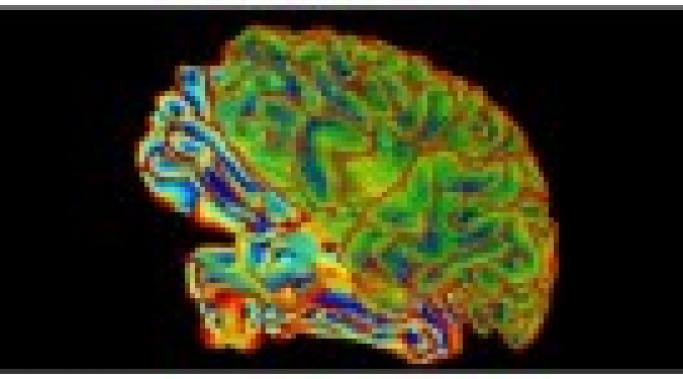Last night we finally sat down to watch the first episode of Perception,a new television series on TNT starring Eric McCormack as Dr. Daniel Pierce, a professor of neuroscience with a brilliant mind – and schizophrenia. Because of this mental illness, he sees things in a different light, evidently extremely useful for solving crimes.
How I could wish that my son Ben's hallucinations were so helpful.
But this is reality.
Perception vs. Reality
I tried to watch the pilot episode with as open a mind as possible. After all it is just a TV show, and it is nice to see someone with schizophrenia be the hero for a change. Still, I wonder about misconceptions being perceived as reality by those who know woefully little about schizophrenia as it is - including Ben himself.
Schizophrenia Diagnosis and Treatment
We know what happened, but not why. We mourn the victims, hug our loved ones to us, and will think twice before walking into a movie theatre for awhile.
The Batman massacre in Aurora, Colorado. Unspeakable violence. Haunting pictures of a grieving father, a critically injured mother who cannot yet be told that her 6-year-old child is one of the victims - and a young, academically-gifted young man now sporting fire-engine-red hair and a (let's just say it) really creepy smile.
And again, the questions:
How could this have happened?
What could have led up to this horrible, terrifying, unspeakable act?
And - as we ask each time this happens - Could it have been prevented? Why did no one see the signs?
And, for me, the gratitude that my own son's mental illness is diagnosed, treated, and no longer defines all of his actions.
The news is exciting: a research study has found that cognitive improvements are possible for those with schizophrenia - and that the results can stick. And even better: these results can be achieved with the help of a program to teach social and cognitive skills with the use of computer games. A reporter called me yesterday for a comment before she finished her article, and it certainly got me to reflect on my my son Ben, and how he is - slowly - beginning to show more signs of "growing up."
One of the very first "aha moments" for me, when I finally began to learn about schizophrenia and its symptoms, came with the information that it is a "double-edged sword" of positive (added to personality) and negative (taken away from personality).
I also learned, in NAMI's Family-to-Family course, about the concept of being "frozen in time" for many affected by mental illness.
Every so often, I am reminded that my son Ben still has to work hard to stay focused on the world as we all know it: work, play, conversations, whatever we are watching on TV. Without his medications, that feat is nearly impossible; with treatment, it's certainly easier. But not without effort. Not without strength.
I just finished reading another mother's memoir about her son's schizophrenia called This Stranger, My Son. I'd not heard of this one until a media producer I was working for (as voice talent) suggested I read it. Evidently she had read it in high school, years ago, and it has stayed with her ever since.
Today's Thanksgiving post features a guest blogger named Erik, with his kind permission. I am so grateful that Ben Behind his Voices is being read not just by families dealing with mental illness, but also by healthcare providers such as psychiatrists, nurses and social workers, and by those who have a mental illness diagnosis themselves.
Erik's story both touched my heart and taught me a lot on this Thanksgiving day, as I continue to learn about points of view that are different from mine - as a mother/caregiver of someone with schizophrenia.
Sure, it's not the story you usually get in the media: Someone with a diagnosis of schizophrenia or schizoaffective actually has a life. This person loves, works, contributes, has useful skills - and is an active participant in his/her own treatment.
But in the NY Times this week, Benedict Carey's article is there on the front page: Lives Restored:A High-Profile Executive Job as Defense Against Mental Ills.1 Keris Myrick, 50, the chief executive of a nonprofit organization, has found ways to manage her illness - and thrive.
Will this happen for my son, Ben? I don't know - but I can hope. I can't expect, but I will dream. For, right now, there is progress in his life that I hadn't dared to dream about even one year ago.
I write this to you from Disneyland, where over 1,000 dedicated psychiatric nurses are passing up on Mickey and Goofy in order to become inspired, educated, and even better than they already are at their jobs. Thank you, members of the American Psychiatric Nurses Association, for wanting to help people like my son Ben as he struggles with schizophrenia.
[caption id="attachment_384" align="alignleft" width="170" caption="for attendees at APNA Conference"][/caption]
Tomorrow morning I will tell our family story at a "Product Theatre" breakfast meeting, along with an amazing nurse who shares this vision: together we will advocate for the value of teamwork between providers, caregivers, and those with the "life experience" of a mental illness diagnosis. I can't wait.
Last night my friend called me from the ER of our local hospital. She is where we were eight years ago: son in crisis, mother in heartbreak, son blaming the mother. Oh, yes. I remember it well.
Without dwelling on details that invade my friend's family privacy, I'll sum it up this way. Bipolar. Not taking prescribed meds. Alcohol. Threatened suicide. 911. Rehab desperately needed. Mother hoping. Son, age 26, wavering, now that rehab (which he said he needs) could now become reality.
I'm a few days late with this post, but with good reason: we've been trying to orchestrate Ben's hospital discharge plans. Yes - after this six-week relapse, he is finally back with us (as of yesterday), in so many ways.
If you've been following this schizophrenia relapse, you know that this had been Ben's first relapse in over six years, and that it was precipitated by a too-quick-and-unguided move from a group home to independent living. Once he went off his meds this time, there was the danger he might not agree to take them again - and that, if he did, they might not work again.
Yet, here we are. I could cry from relief and happiness. For today, we have Ben back.









